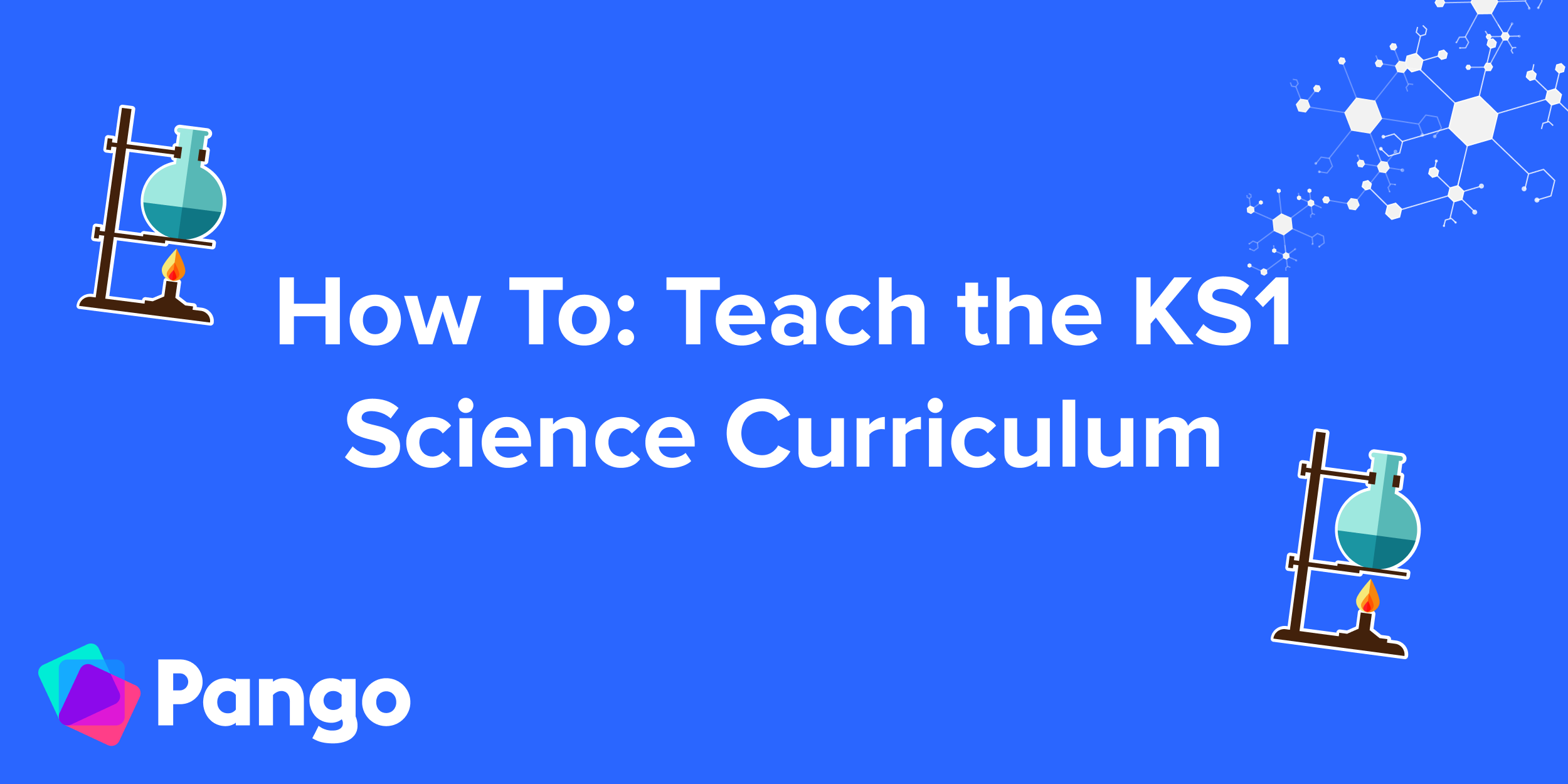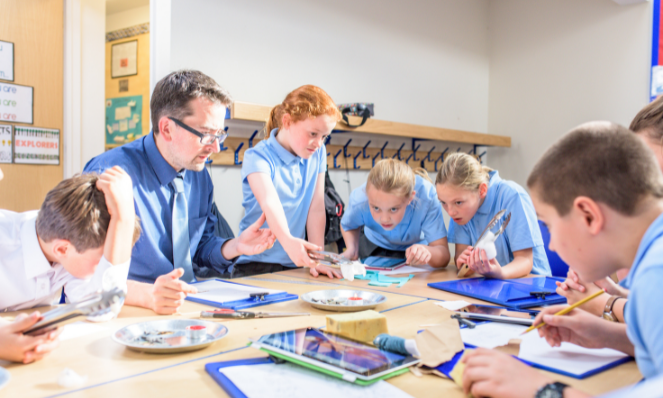How to teach science if you’re not a science expert

Teaching science can be a daunting idea;
- What if the experiments go horribly wrong?
- What if they ask me why trees grow, and rocks don’t?
- What if they can tell that I’m not a scientist?
It’s no wonder that only 32% of primary teachers strongly agree that they are “confident in teaching science”. (The Wellcome Trust’s State of the Nation report of UK Primary Science Education)
This underconfidence affects how often teachers choose to deliver practical science investigations with their classes either because of a lack of confidence in the topic area or because of worries about problems or questions that may arise during the lesson.
We’ve put together a list of 9 recommendations for teaching science if you’re not a science expert.
And, we’ve partnered with Pzaz to offer complete science schemes for Reception to Year 6 on Pango. Part of the reason that we chose to partner with Pzaz is that every Pzaz lesson contains a fantastic teacher explanation video to walk you through the activities, catch potential issues before they arise and make sure your knowledge of the topic area is solid.
If you’re feeling underconfident about teaching primary science, don’t worry, you’re not alone. Ofsted recognises that it’s particularly important for people teaching science to have “access to regular, high-quality subject-specific continuous professional development (CPD); this is especially important given that many science teachers are teaching outside of their subject specialism)”.
-
Make a big deal out of questions
Students asking questions is a big part of what we’re trying to encourage when we’re teaching science at primary schools – the National Curriculum for Primary Science mentions students asking or raising questions 23 times!
Science is all about questions and being inquisitive, which is why curiosity is so fundamental to developing a love of science. So, pile on the praise every time someone asks a question and try to build a classroom culture where students feel comfortable asking questions.
-
Free CPD
Ofsted knows it’s important, the DfE knows it’s important, you know it’s important. Sadly, high-quality CPD for teachers can be difficult to organise, find or fund.
Fortunately, Imperial College London has created Reach Out CPD which provides free 20-minute CPD units to give tips for teaching science, provide ideas for practical sessions and help you build your subject knowledge. With over 40 hours of bite-size videos covering the whole Primary science curriculum as well as science classroom management, assessment and progression and outdoor science, we can’t recommend Reach Out CPD enough.
-
Make the connection
It’s important to make sure that students don’t think of science as a list of unrelated facts. This is something that Ofsted’s 2021 research review of science identified as an issue in several schools.
To prevent this problem from arising with your students, think about how your science curriculum hangs together and builds on existing knowledge. If you’re teaching about diet and nutrition, ask students what they’ve already learnt about plants.
How to Write and Prepare a Great Science Lesson
By using science schemes of work like Pzaz, that explicitly link to lessons from previous years you can build a stronger understanding of science as a discipline that continuously builds on what students already know.
-
Get outside
Make your science lessons exciting and build positive associations by taking your class out into the playground.
Whether it’s teaching Reception about the habitats of creepy-crawly insects, Year 3 about the surfaces of leaves or Year 5 about gravity, by injecting change and getting your class outside your students will get a whole host of benefits to their learning, their attitudes towards science and to their wellbeing.
That said, it’s important to make sure that all practical work has a clear purpose and that it’s contributing to a student’s scientific knowledge base and building on what they already know. You should avoid teaching one-off practical science lessons that don’t link to the rest of their science education to avoid students developing the idea that science is just a collection of unrelated facts about the world.
-
Be honest with your class
If you’re feeling underconfident, let your students in on the secret. Letting them know that you’ve never tried this experiment before and you’re not sure how it’s going to go can provide a break from the norm and make children feel more active and involved in their own learning.
If you don’t know the answer to a question, tell them. You can develop the understanding that science is often about not knowing the answer and that what’s important is thinking about how we could work it out.
-
Remember the aims
As well as building foundational, scientific knowledge, the National Curriculum aims at developing ‘a sense of excitement and curiosity about natural phenomena'.
By engaging students in practical experiments, you introduce them to scientific methodology and ‘encourage them to ask their own questions’ (another part of the National Curriculum for Science). So don’t get too weighed down on having the perfect answers and instead think about encouraging genuine curiosity and excitement.
-
You tell me!
Encourage students to try and answer their own questions. You can promote the scientific ideals of discovery and questioning and inquisition. This is a perfect use for difficult questions - engage children’s lateral thinking by asking if anyone has any ideas for how we could find the answer together.
-
How do you find the time?
Science lessons take longer to plan, set up and clear up than lots of other lessons, it’s true. This can be made even more difficult if Science Leaders aren’t given release time to plan and organise experiments.
By running small science units over multiple lessons, you can buy yourself time in future lessons. Running an intro lesson with starters, explanations, and foundational assessment for learning means that you can get straight into an experiment or activity in your next lesson. It can seem like a lot to have to squeeze in a starter, an explanation, an experiment and a plenary into one lesson.
-
You don't need fancy equipment
When we think of teaching science, we immediately think of test tubes, lab coats and beakers of spillable chemical reactions, then it’s laying out newspaper everywhere and cleaning it all up at the end.
If you’re feeling underconfident, start small! Loads of science experiments can be run with classroom basics and a few extra bits of dry recycling.
- You can teach Year 1 about seasonal change with a cut-in-half 2-litre water bottle with a ruler taped inside it by placing it outside and measuring weekly and monthly rainfall.
- You can run an experiment with Year 6 about the heart and the circulatory system with just a stopwatch and enough space for them to do star jumps.
Just because you’re not a trained science specialist and you don’t have a deep science budget at your disposal, it doesn’t mean that you can’t run fantastic science lessons throughout the year that encourage curiosity and build scientific foundations.
While you’re thinking about teaching science, learn what you can do today to Inspire the Next Generation of Women in STEM.


